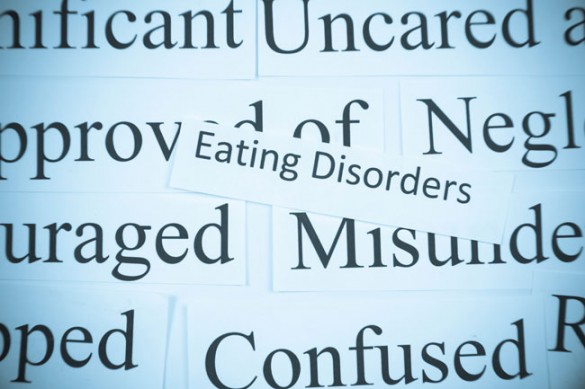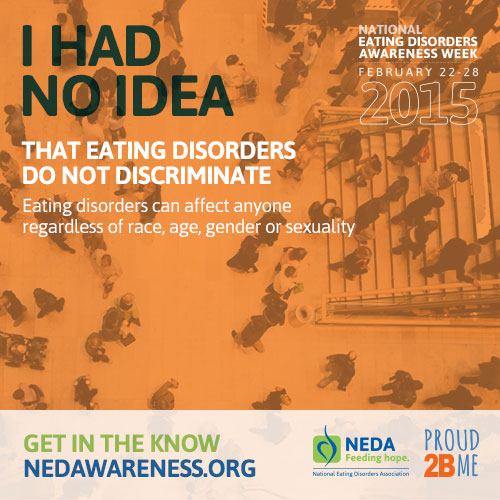
Each year, the National Eating Disorders Association recognizes the last week of February as National Eating Disorders Awareness Week. This year’s campaign is titled “I Had No Idea.”
In 2011, studies estimated that 20 million women and 10 million men in the United States suffer from a clinically significant eating disorder at some time in their life, including anorexia nervosa, bulimia nervosa, binge eating disorder or an eating disorder not otherwise specified (EDNOS).
When people think of “eating disorders” they tend to focus on adolescent girls who are dangerously thin or women who use excessive exercise, laxatives, pills or vomiting to compensate for calories that are consumed.The reality is that approximately 5 percent of the population of the United States falls into a third category—binge eating disorder. Of that 5 percent, 40 percent of those are men.
Binge eating is not the same as “overeating.” Binge eating happens on a recurrent basis and is tied to many negative emotions, such as guilt, shame and embarrassment. People with binge eating disorders eat when not hungry, eat to the point of discomfort or eat alone because of shame about the behavior.
 We often joke about “binge watching” television programs, but binge eating is no joke. People with binge eating disorder often develop serious illnesses such as high blood pressure, high cholesterol levels, heart disease, diabetes, gallbladder disease or musculoskeletal problems. There is also a high co-occurrence of depression and other mood issues.
We often joke about “binge watching” television programs, but binge eating is no joke. People with binge eating disorder often develop serious illnesses such as high blood pressure, high cholesterol levels, heart disease, diabetes, gallbladder disease or musculoskeletal problems. There is also a high co-occurrence of depression and other mood issues.
Raising awareness about eating disorders requires that we consider the full range of what constitutes disordered eating. Many have no idea that they could be suffering with disordered eating because of shame, denial or the belief that only skinny people have eating disorders. In order to address the needs of millions of Americans, we need to use opportunities such as National Eating Disorders Awareness Week to engage and educate professionals and the public on realities of which they may have no idea.
To learn more about eating disorders, please visit the Work/Life Connections–EAP website’s Resource Library for the article “Signs, Effects and Recovery Support for Eating Disorders.”
If you are concerned about your eating behaviors, you can also take a confidential and anonymous self-assessment through WLC–EAP’s online screening.
If you want to speak with a trained counselor, call Work/Life Connections–EAP at (615) 936-1327 for a confidential appointment.